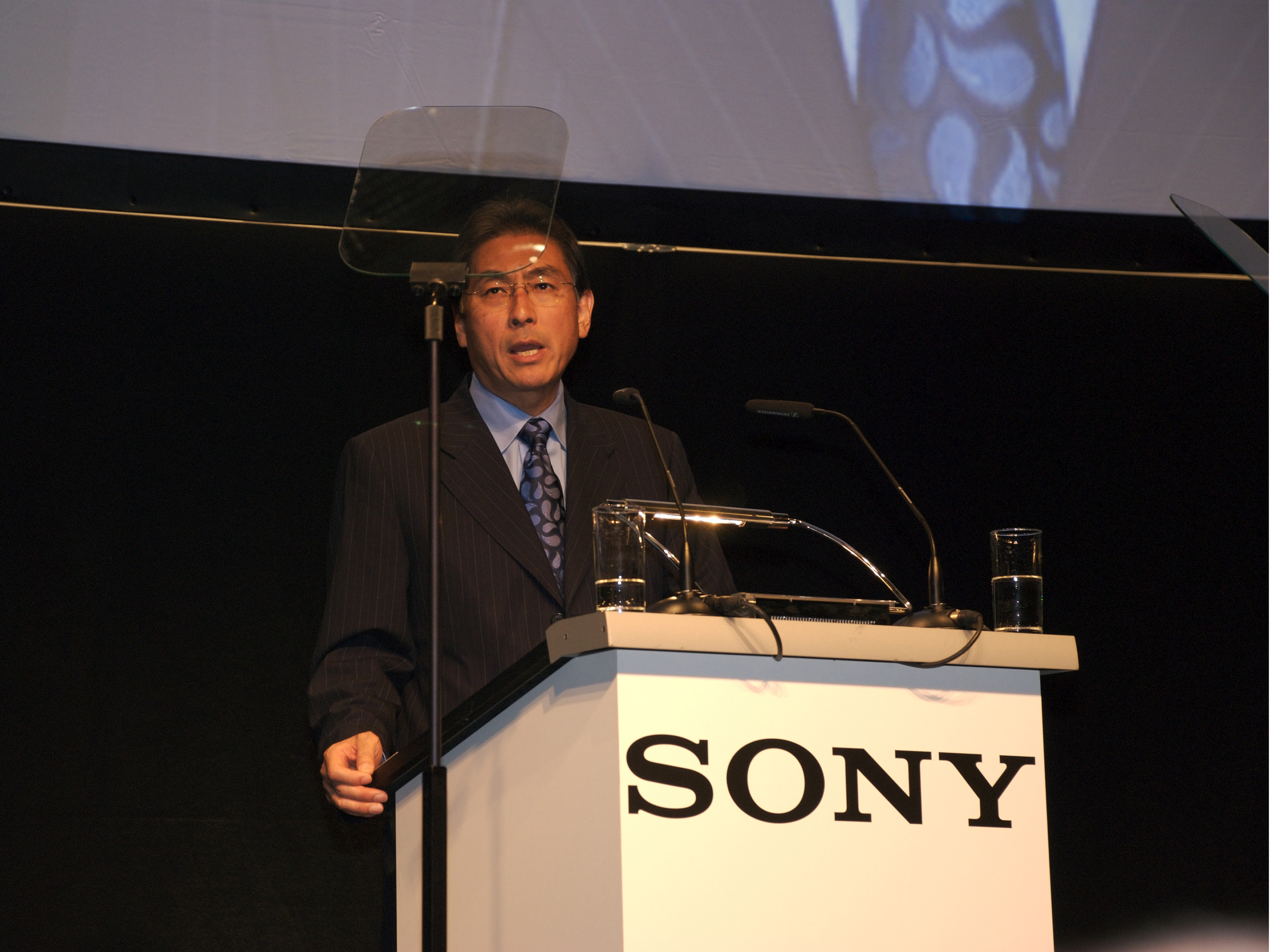
Sony's European vice president Fujio Nishida once again apologised for the company's past mistakes during his IFA 2007 keynote this morning. He also outlined the company's vision for an HD future.
Nishida's keynote was light on substance and any really new ideas - but that seems to be the key theme emerging from all of the big CE companies today.
Sony could not stand still as a company, Nishida said, citing that "just about anyone can source a few chips and call themselves as manufacturer of camcorder and MP3 players" these days.
To meet the challenge Nishida said Sony's aim was to offer a "unique digital entertainment experience" by drawing on its technology know-how and a "razor-sharp focus" on customers' needs.
To prove the point he said that 75 per cent of the company's products would be HD ready "from lens to the living room". That is from its camcorders to devices like Bravia LCD TVs and Blu-ray players.
Sony plans to launch two Blu-ray players in Europe this year: one - the BDP-S300 - will be "priced for wide appeal"; the other - the BDP-S500 - will be aimed a high-end model.
Sony's Blu-ray sweetener
As a sweetener, Blu-ray buyers in certain European countries will be given a Blu-ray box set of the Spiderman trilogy. It's not clear yet whether that includes the UK.
Sign up for breaking news, reviews, opinion, top tech deals, and more.
Nishida made frequent reference to Sony as "Sony United", perhaps to indicate a break with the past where different divisions in the company engaged in in-fighting about the best way forward for the company.
Sony has certainly appeared to have lost its way in recent years, scoring some spectacular own goals - particularly the the Sony BMG rootkit disaster which effectlvely installed spyware on to people's PCs when they loaded audio CDs from the label into their PCs.
Costly battery recall
Adherence to proprietary DRM formats like ATRAC, and the internal wrangling and delayed launch of the PlayStation 3 haven't helped either. Neither has a damaging - and expensive - laptop battery recall.
The apologetic tone to Nishida's keynote - and other speeches made by top Sony executives - proves the company has still some way to go before it can reclaim its position as the world's number 1 consumer electronics company.
What we'd all like them to do now is stop apologising for past mistakes on deliver on the innovative and new, otherwise the company may as well change its name from Sony to "Sorry".